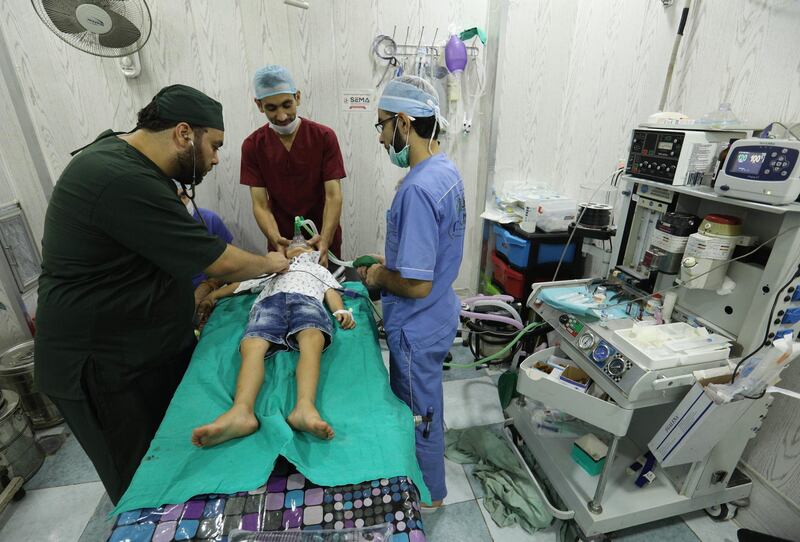Over nearly eight years, the brutal conflict in Syria has exposed the darker side of human nature on far too many occasions. Now the rise of a kidnapping industry in Idlib province provides further evidence, should any be needed, that no matter how low human beings have sunk, there will always be some prepared to sink even lower.
It is less than two months since Turkey and Russia established a demilitarised buffer zone around the north-western province, forestalling a potentially catastrophic offensive by the Assad regime and bringing a glimmer of hope to the three million civilians trapped alongside up to 75,000 rebel fighters. Now a fresh horror is emerging. Despite the ceasefire, a number of medical frontline workers have been kidnapped and held to ransom. Some blame criminal gangs, others the Al Qaeda-affiliated Hayat Tahrir Al Sham. Whatever the truth, it seems likely that much of the money generated by this despicable industry has found its way into the Hayat Tahrir Al Sham war chest. The distinction is academic, both for the kidnap victims and their families, and for a desperate population facing the loss of badly needed and already scarce medical care.
Doctors, pharmacists, paramedics and even health administrators are being targeted for two simple reasons: they earn more than most and, at work in the community without protection, they are easy prey. Some have been returned for ransoms, others remain missing. At Sochi in September, the Russian and Turkish presidents shook hands on a deal for Syria in a spirit of mutual self-interest. Both, then, carry a degree of responsibility for events unfolding in Idlib. Turkish and Russian troops patrol the 20 kilometre-deep buffer zone. Turkey has a dozen military observation posts within the enclave, heavily manned and backed by armoury. It behoves both powers to monitor and regulate criminal activities within the province. Turkey, especially, is in a position to do so. It maintains links with rebel groups for the express purpose of keeping Hayat Tahrir Al Sham in check, yet the rash of kidnappings shows it is failing in this objective. In a region already desperately short of doctors and other medical staff, many healthcare workers are now reportedly considering giving up their vital work in the face of the imminent risk to their lives. Some aid organisations say they might also withdraw if the abductions continue.
None of this matters, it seems, to those happy to exploit the vulnerable and the desperate in order to further their own ends. Once again, it is Syria’s ordinary, innocent civilians – men, women and one million children who have already been through so much – who will pay the price for a cynical display of the darker side of human nature.





